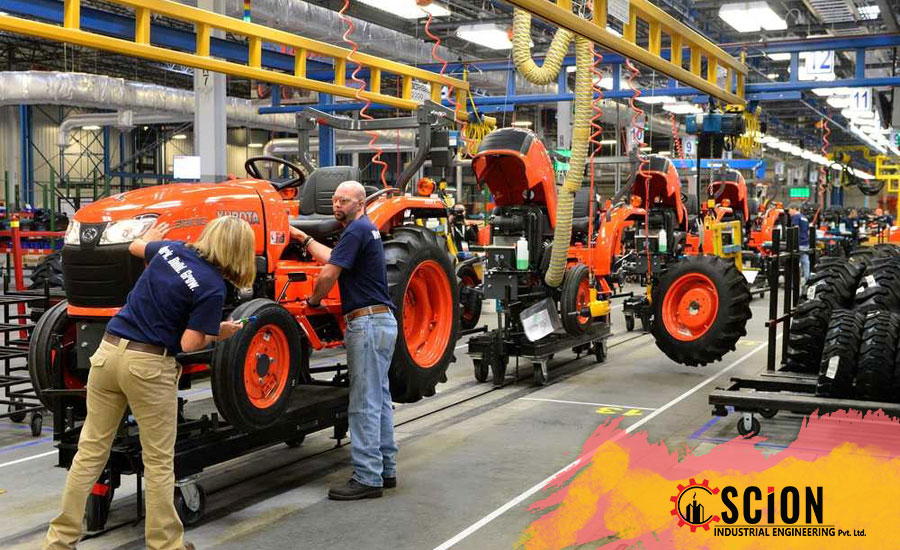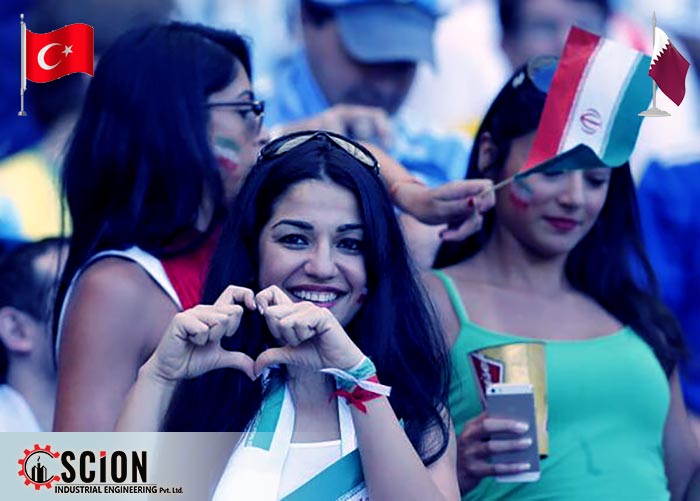A business delegation from Tabriz in northern Iran was expected in Namibia’s capital Windhoek on Wednesday to finalize a contract that in a year’s time could culminate in Iranian-designed tractors—for agricultural purposes–rolling off an assembly plant, either in Windhoek or Walvis Bay, and bolstering employment.
This was revealed in an interview by Namibian newspaper New Era in Windhoek by Vahid Karimi, the ambassador of Iran to Namibia, who affirmed the visit of Iran Tractor Manufacturing Company‘s CEO and his delegation as the outcome of a rendezvous some two months ago between the two countries.
“A delegation from Iran was here two months ago and they have seen the sites that could be allocated for that purpose. It could either be in Windhoek or Walvis Bay, but it all depends on the company to have the final decision. I think if everything goes well, within a year we could have the first production of tractors in Namibia,” he said.
“My job as ambassador is to connect the people—as for the details, they are going to work them out when they meet,” he said in response to a question on the number of jobs to be created and the magnitude of Iranian investment in the contemplated tractor assembly plant.
Karimi was very optimistic and said, “The planned tractor assembly plant will help create jobs and help in the transfer of knowledge and skills. In the agriculture area, I am sure it will create lots of jobs.”
The ambassador noted that Rouhani is keen to boost trade and diplomatic relations with the 54 African countries, and in this vein, he gave the assurance: “I’m trying to bring more Iranians here. As you might be aware, Iran’s immediate neighbor is Europe, and many Iranian business people used to go to Europe but now the priority of my present government is Africa, so they are coming to African countries in big numbers where they are engaged in business. I give you the example: last year, our trade with Kenya increased by more than 150%, and in some African countries, Iranian cars are produced and used as taxis.”
Iran’s Foreign Minister Mohammad Javad Zarif led a high-ranking politico-economic delegation to Africa last month.
According to Foreign Ministry’s Director General of Africa Department Mehdi Aqa-Jafari, the African tour–the third such visit in the last four years–indicates Iran’s determination to put promotion of wide-ranging ties with the continent on top of its agenda.
“To establish consistent political relations with Africa, it is essential to develop strong economic interactions and this has been seriously pursued on our part regarding Africa nations,” he has been quoted as saying.
The Iranian delegation visited South Africa, Uganda and Niger.
Iranian President Hassan Rouhani is planning to visit the African Continent by the end of the current Iranian year (March 20, 2018).
During the South African National Assembly Speaker Baleka Mbete’s visit to Tehran in September, she said her country is interested to see Iran join BRICS–an association of five major emerging economies: Brazil, Russia, India, China and South Africa.
Joining the bloc would help Iran to substantially increase its international ties, especially with African powerhouse South Africa.
Karimi was also quick to point out that youth unemployment affects both Namibia and Iran, as oil and gas in the latter accounts for 80% of public revenues and generated over $135 billion in foreign reserves as of last December.
The Iranian ambassador feels the tractor investment has numerous benefits and should not be seen from a one-dimensional viewpoint, as tractors are multi-purpose and could be used for fruit production, poultry production and other agricultural applications.
He recalled that Namibian President Hage Geingob believes that if a country is not “self-sufficient” in food production, it is not independent, and he was absolutely right.
“I am happy that I am doing my duty to do something good for Namibian food production. It is very important,” he said.
Another area of potential bilateral trade cooperation is the possibility of Iran importing beef from Namibia. He said the shorter distance from Namibia to Iran could make business sense to Iranian importers of Brazilian beef–a country that is located far away.
He also commended “the very delicious Namibian hake (a fish related to the Atlantic cod)” that he feels could be imported by Iran that has a population of 82 million, of whom 13.26 million live in Tehran, the capital city.
Iranian investors are also interested in setting up a pharmaceutical plant, while Namibia could reciprocate by importing bitumen and asphalt for highway and road construction.
One of the setbacks he singled out in bilateral ties is that Namibia has not yet established an embassy in Tehran and he jokingly said he is also the de facto Namibian ambassador to his own country.
> Iran’s Tractor Manufacturing Prowess
Iran is a prominent manufacturer of tractors and combine harvesters that are exported across the Middle East and East Asia.
Iran Tractor Manufacturing Company is the largest producer of tractors in Iran with an 80% share. The company produced 14,400 tractors and exported 2,000 units worth $235 million to neighboring countries in the last Iranian year (March 2016-17), mainly to Azerbaijan, Afghanistan, Pakistan and Iraq.
ITMCO Chairman Abolfat’eh Ebrahimi said the company plans to produce 18,000 tractors in the current Iranian year and plans for a 30% year-on-year increase.
“Iran Tractor Industrial Group will export up to 25% of its products this year,” he said.
The company produces a range of small and medium diesel-powered tractors with single and double differential gearboxes.
Many of the older models are based on Massey Ferguson designs from the 1970s, as part of a joint venture prior to the 1979 Islamic Revolution.
The company has a production capacity of 30,000 vehicles a year, according to its own estimates.
ITMCO is located on the outskirts of the industrial city of Tabriz in northwest Iran.
Domestic producers recently voiced concerns regarding the import of tractors.
Amir Hossein Shiravi, the director general of Machinery and Equipment Manufacturing Office with the Ministry of Industries, Mining and Trade, said that in the 18 months to Sept. 22, only 2,220 tractors, including 1,740 light- and medium-weight and 480 heavy tractors, were imported into the country, while over the same period, 22,400 tractors were produced by local manufacturers.
“Imports constituted less than 10% of our domestic production. Heavy tractors are imported since we cannot manufacture them inside the country and there is demand for them,” he said.
Shiravi noted that local companies have recently started the domestic production of heavy tractors.
A heavy tractor manufactured by Iran Tractor Manufacturing Company was unveiled on March 2015 during a ceremony attended by Agriculture Minister Mahmoud Hojjati. The company has yet to start mass production.
During the sixth session of Iran-Ghana Economic Commission held on Nov. 13-16 in Accra, Iran agreed to launch a tractor production line in the West African country.
Source:https://financialtribune.com/articles/economy-business-and-markets/77011/iran-to-manufacture-tractors-in-africa



